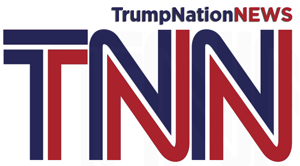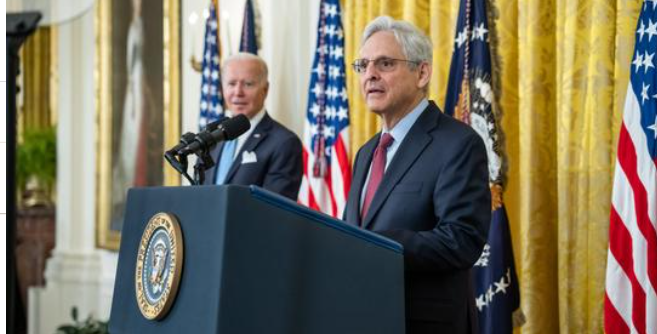A federal judge on Monday granted former President Donald Trump’s request for the appointment of a special master to review the documents seized by the FBI during a raid on his Mar-a-Lago home last month. Presiding Judge Aileen Cannon, a Trump appointee, further held that the Department of Justice cannot review or use for criminal investigative purposes any material seized pending the review process.
Besides handing Trump a victory in his battle for some oversight of the Biden administration’s digging into his documents, Cannon highlighted several significant facts over the course of her 24-page order that further call into question the DOJ’s targeting of Trump.
Here are the seven top-line takeaways:
1. President Biden Was Directly Involved
In the order granting Trump’s request for the appointment of a special master, Cannon began by providing a summary of the backdrop that led to the search. Throughout 2021, Trump and the National Archives and Records Administration (“NARA”), “engaged in conversations concerning records from [Trump’s] time in office,” the court noted. Those discussions resulted in Trump in January 2022 transferring 15 boxes from Mar-a-Lago to NARA. NARA subsequently informed the Department of Justice that some items in the boxes contained markings of “classified national security information.”
Following the archive’s outreach to the Justice Department, NARA notified Trump on April 12, 2022, that it intended to provide the 15 boxes to the Federal Bureau of Investigation. Trump’s attorneys sought a delay in the transfer to assess whether any documents contained privileged material. But then, as Cannon wrote, after obtaining a short delay, on May 10, 2022, NARA informed Trump it would proceed with “provid[ing] the FBI access to the records in question, as requested by the incumbent President, beginning as early as Thursday, May 12, 2022.”
In including this quote in her order, Cannon cited the letter the NARA’s acting archivist sent to Trump’s lawyer. That letter explained that Biden had decided to defer to the archivist’s “determination, in consultation with the Assistant Attorney General for the Office of Legal Counsel, regarding whether or not [the archivist] should uphold the former President’s purported ‘protective assertion of executive privilege.’” Acting Archivist Debra Steidel Wall then explained in the letter that based on her consultation with the assistant attorney general for the Office of Legal Counsel, she had decided not to honor Trump’s claim of privilege.
While the media has previously highlighted those aspects of the letter, Monday’s order highlighted a key sentence in that same letter that went less noticed by the press: “NARA will provide the FBI access to the records in question, as requested by the incumbent President, beginning as early as Thursday, May 12, 2022” (emphasis added).
This language indicates that Biden did not merely defer to the NARA but asked the NARA to give the documents to the FBI. Of course, deferring to the NARA’s judgment equated to Biden authorizing the hand-off to the FBI, but this passage suggests a more direct connection between Biden and the investigation into Trump.
2. Timeline of the Trump Targeting Is Suspect
A second significant detail revealed by Monday’s order concerns the timeline of events, which the court exposed by providing a clear chronology. On May 10, 2022, the archivist informed Trump’s lawyers that the “NARA will provide the FBI access to the records in question, as requested by the incumbent President, beginning as early as Thursday, May 12, 2022.” And on May 11, 2022, before the DOJ received possession of the 15 boxes from NARA, the DOJ “obtained a grand jury subpoena,” for “[a]ny and all documents or writings in the custody or control of Donald J. Trump and/or the Office of Donald J. Trump bearing classification markings.”
But why would the DOJ seek a grand jury subpoena for any and all documents in Trump’s possession bearing classification markings before reviewing the material provided by the NARA? And given that the DOJ obtained the subpoena the day after the NARA told Trump’s lawyer “the incumbent President” had requested the archive provide the documents to the FBI, one must ask: Did Biden direct the DOJ to obtain the grand jury subpoena?
Read the full article here.
ICYMI: “Trump attorney who was former DOJ official questions department’s appeal of special master”
Trump attorney Jim Trusty, who previously served in the DOJ and as a federal prosecutor in Maryland, questioned his former employer’s steadfast opposition to a special master sorting through documents seized during the Mar-a-Lago raid.
Trusty recounted the court session in West Palm Beach, Fla., where he asked what the harm would be to the Justice Department if someone essentially checked their work.
“What we have in this situation is such a historical first, and I mean that in a very negative way — to have this search warrant based on failed, narrow negotiations, I suppose, that allowed the government to basically ransack the president’s residence,” he said.
“You’d think that in this era of the attorney general constantly talking about rule of law and transparency, that he would be the first one to say, ‘Sure, another set of eyes is perfectly fine.'”
Trusty nodded to “Life, Liberty & Levin” host Mark Levin’s past post as chief of staff to Attorney General Ed Meese to say he was always proud to have worked at DOJ and questioned why the custom of “small justice” and trying to “do the right thing” for the American people seems to be eroding.
Read the full article by Charles Creitz with Fox News here.
ALSO READ: Federal Judge Notes in Special Master Order a Quoted DOJ Citation That Joe Biden Ordered FBI Access to Mar-a-Lago Documents
ADVERTISEMENT

















